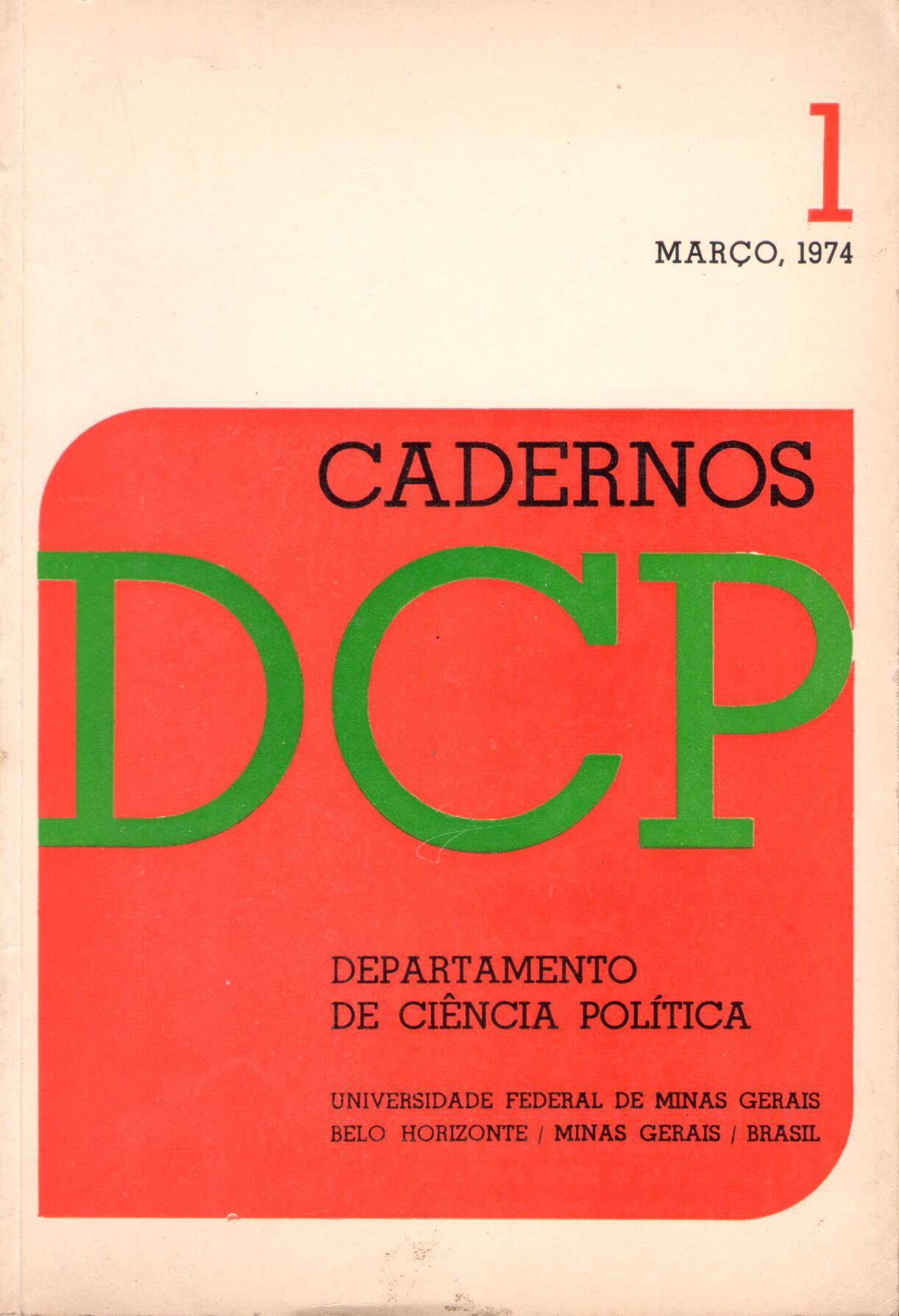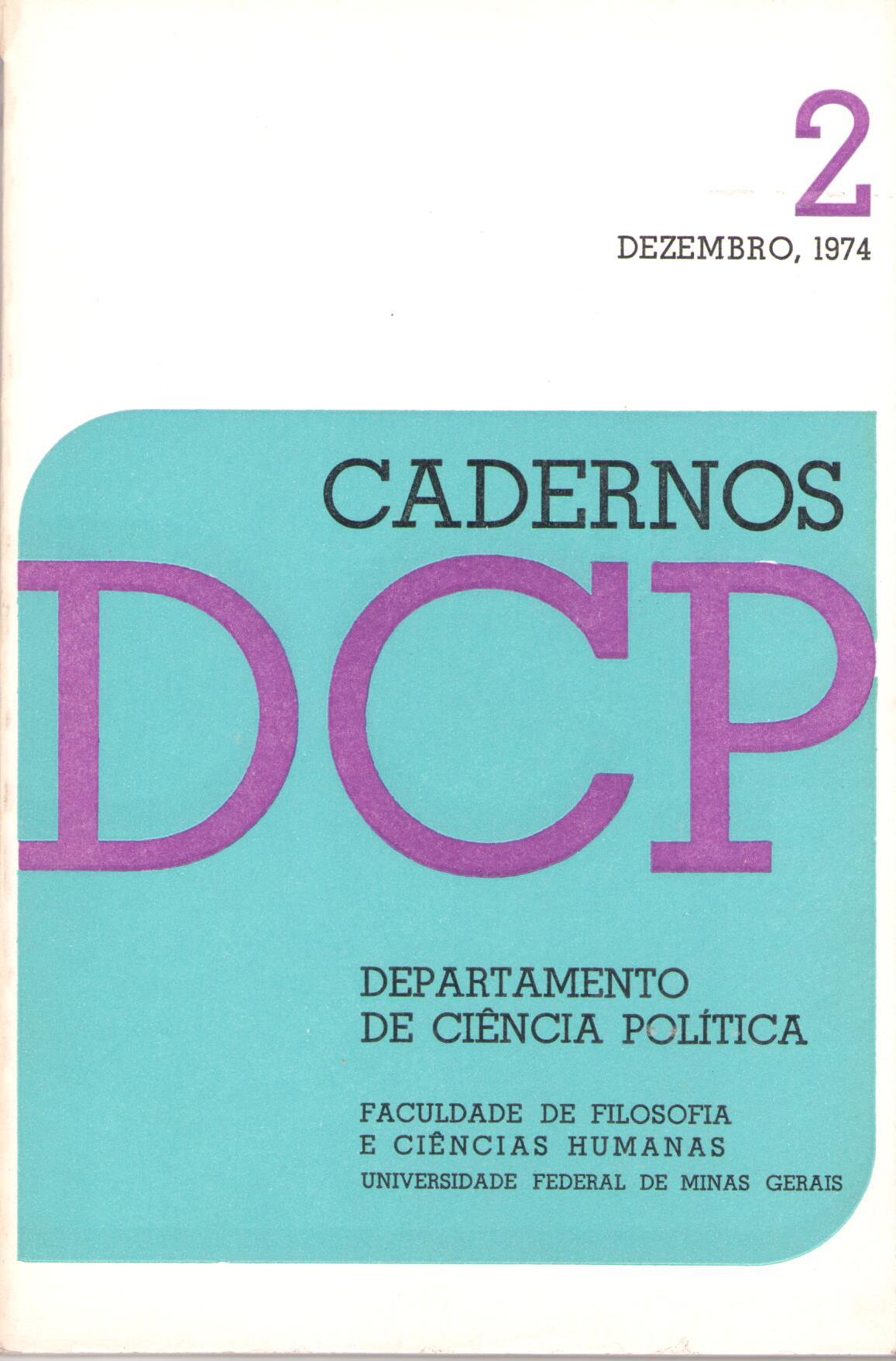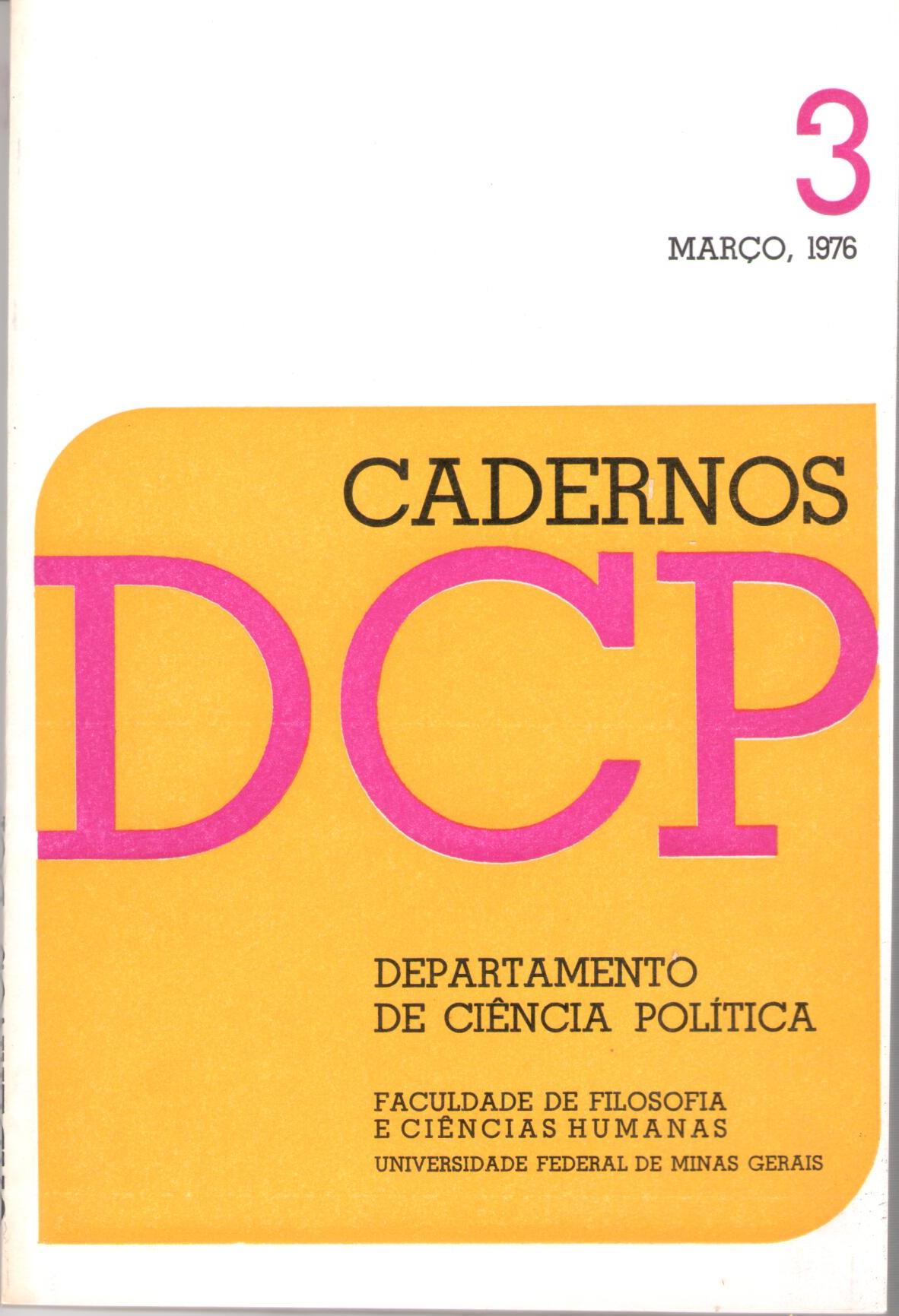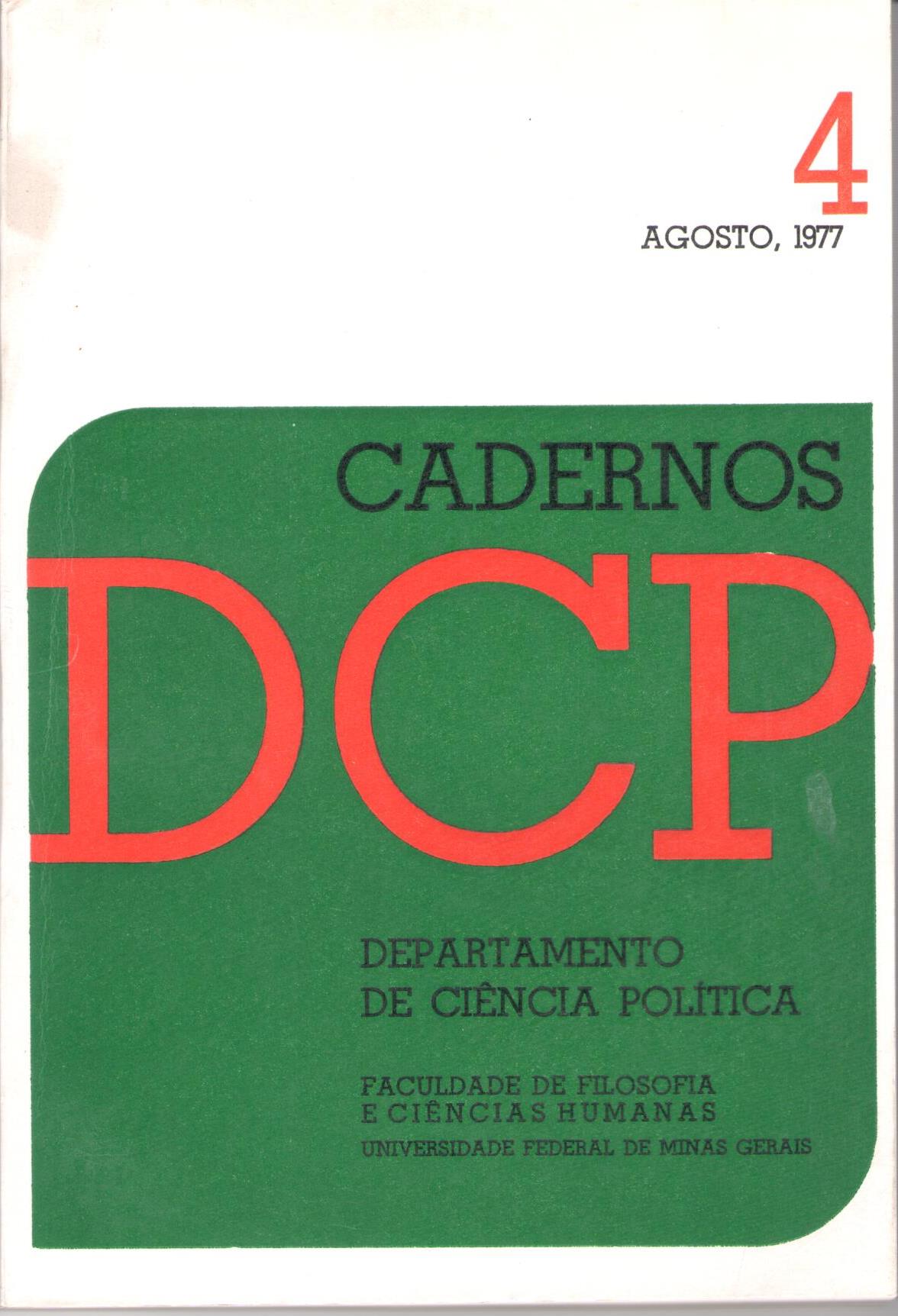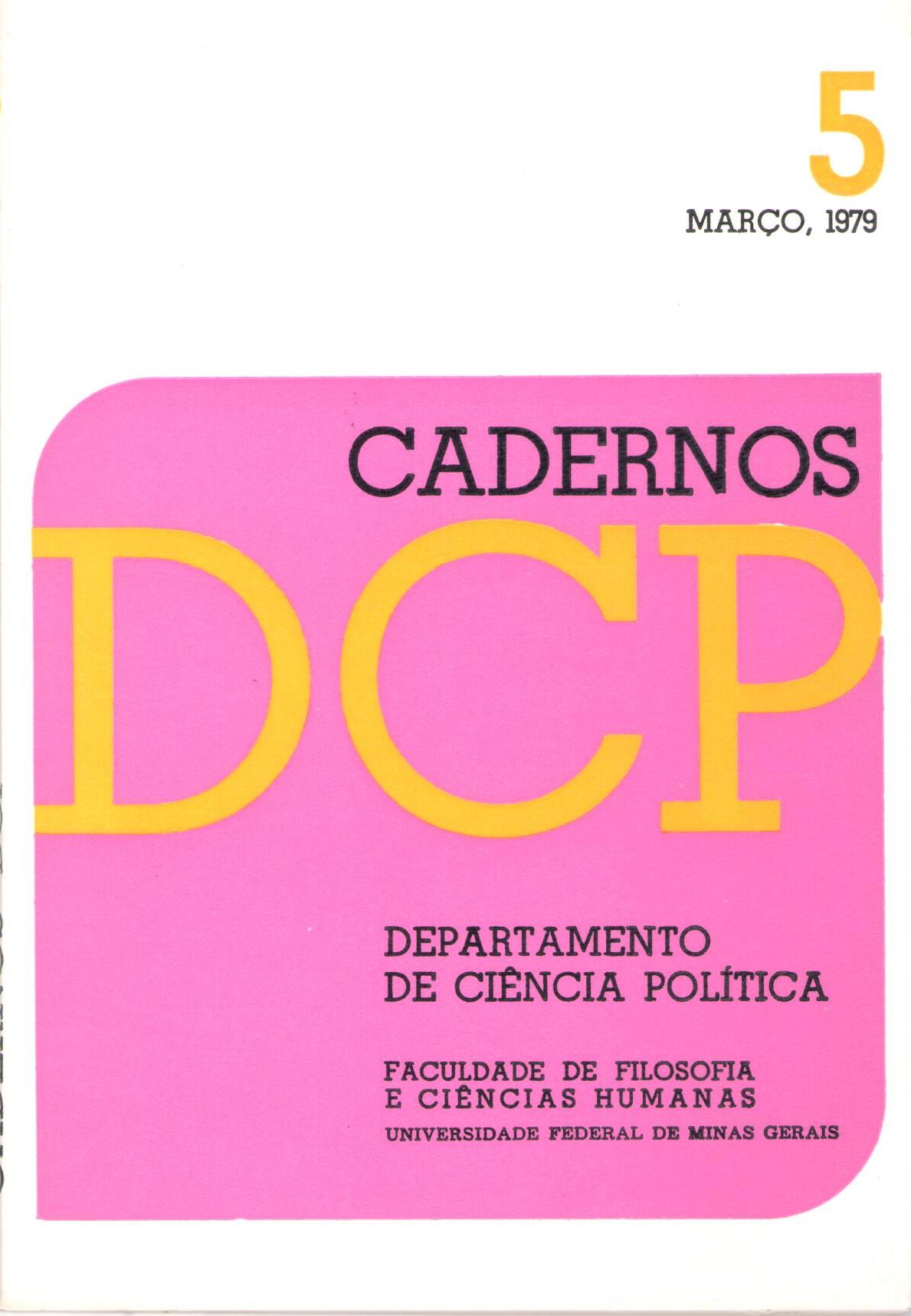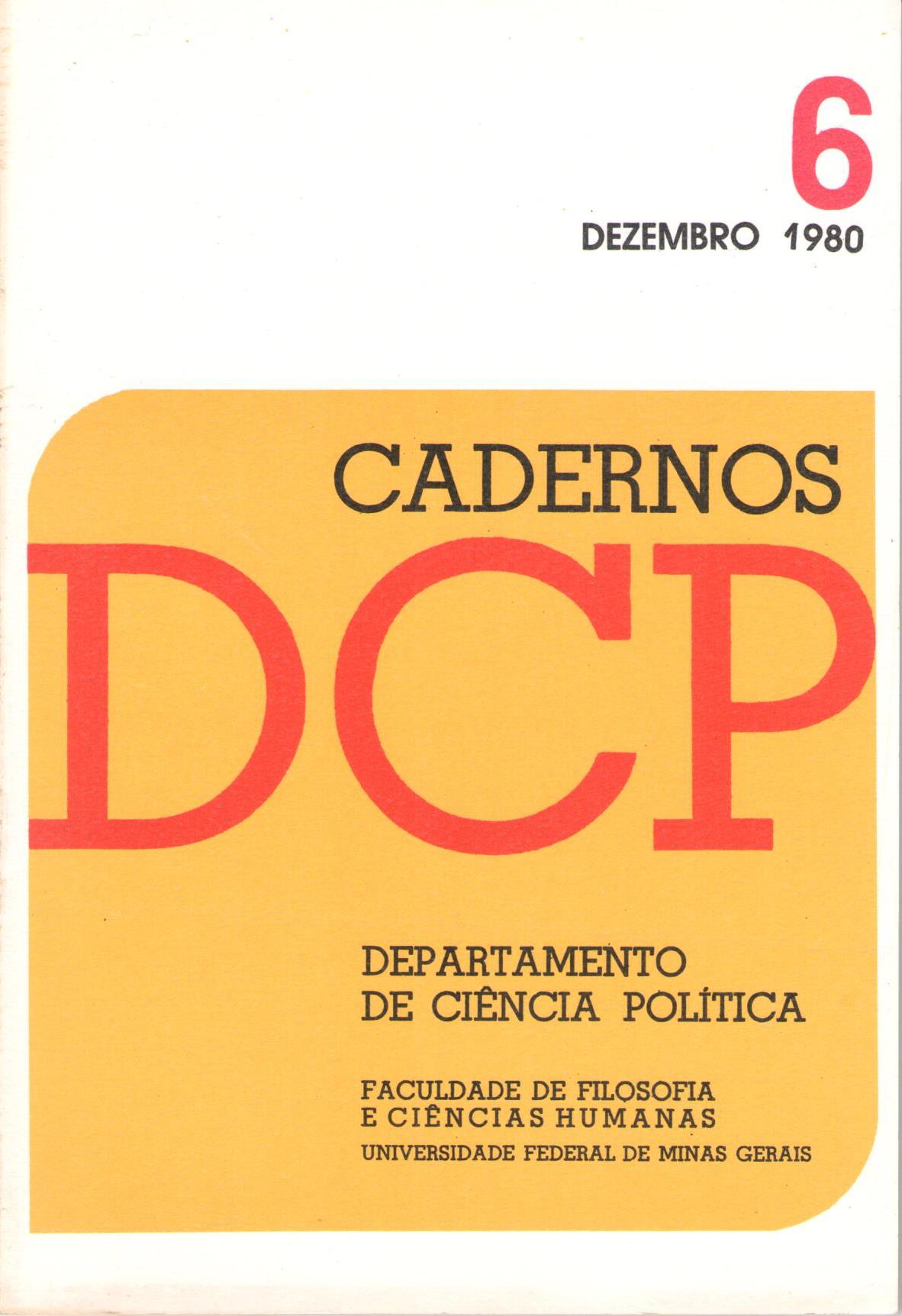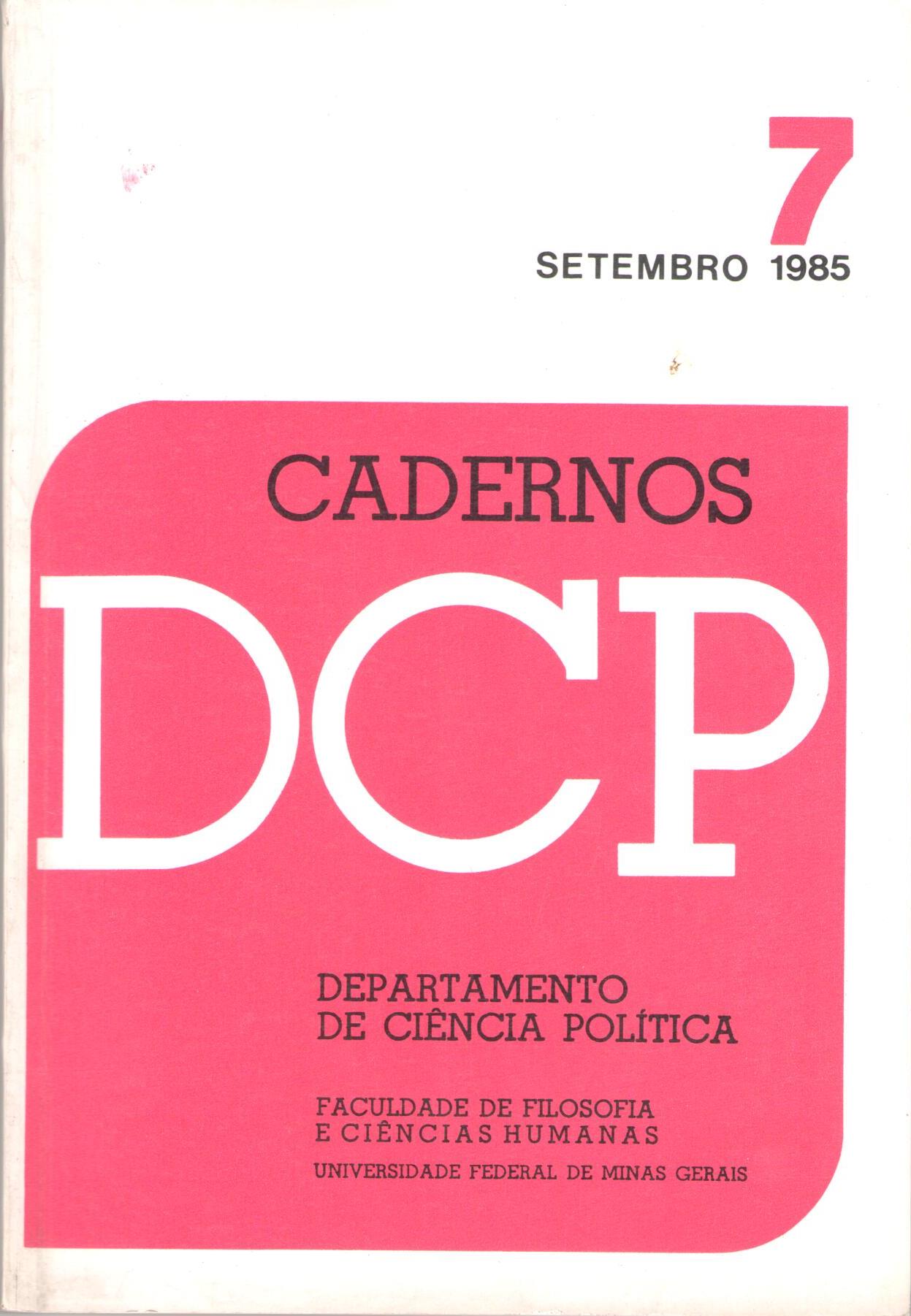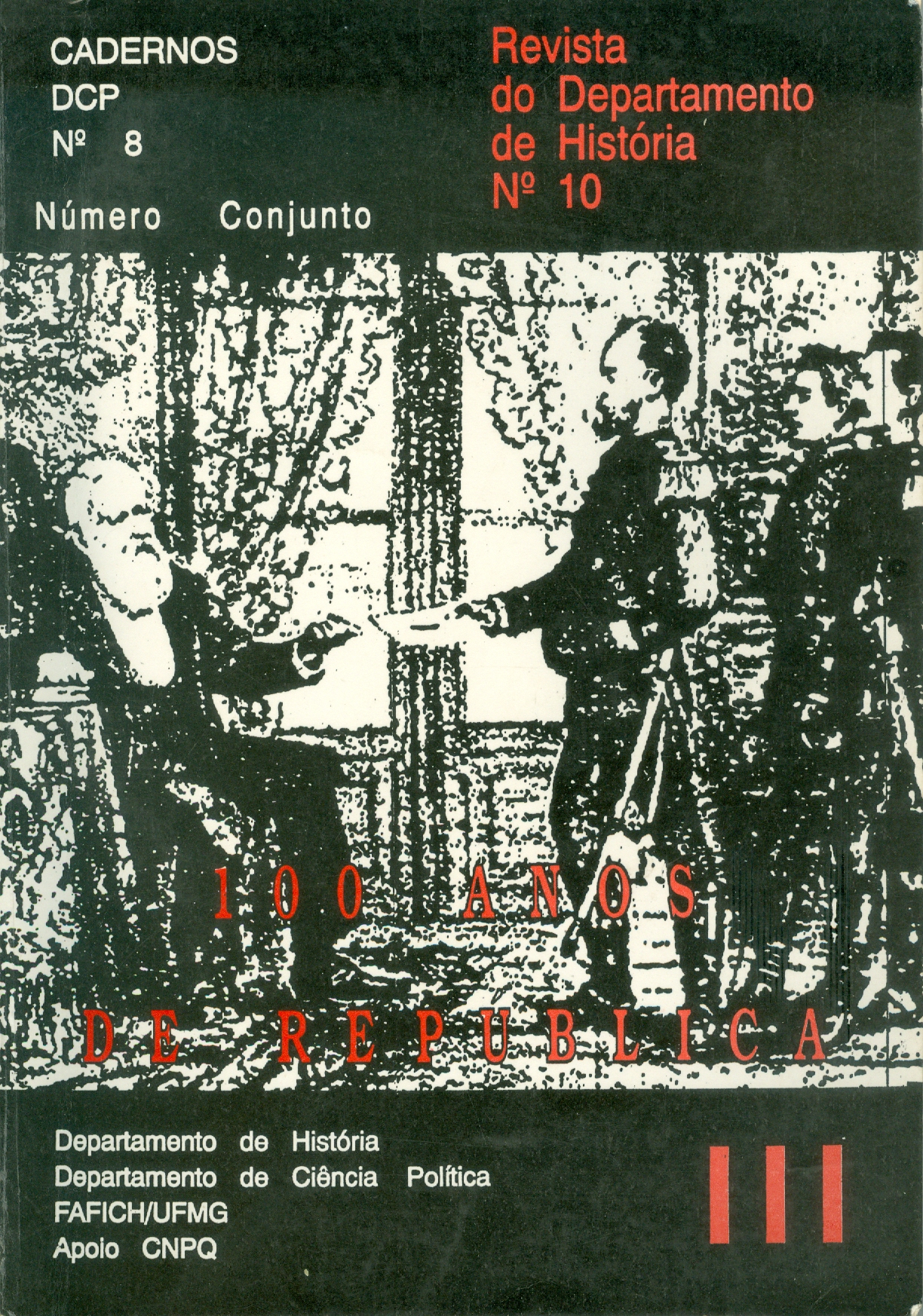Memory
Brief history of the DCP and the PPGCP-UFMG
The Master's Degree of the Graduate Program in Political Science (PPGCP) at the Federal University of Minas Gerais (UFMG) was the first of its kind created in Brazil. More specifically, on December 6th, 1965, through Resolution 11/1965, the Department of Political Science at UFMG was created with the specific purpose of "(...) teaching courses focused on Master's and PhD degrees and conducting research in Political Science and related areas (...)".
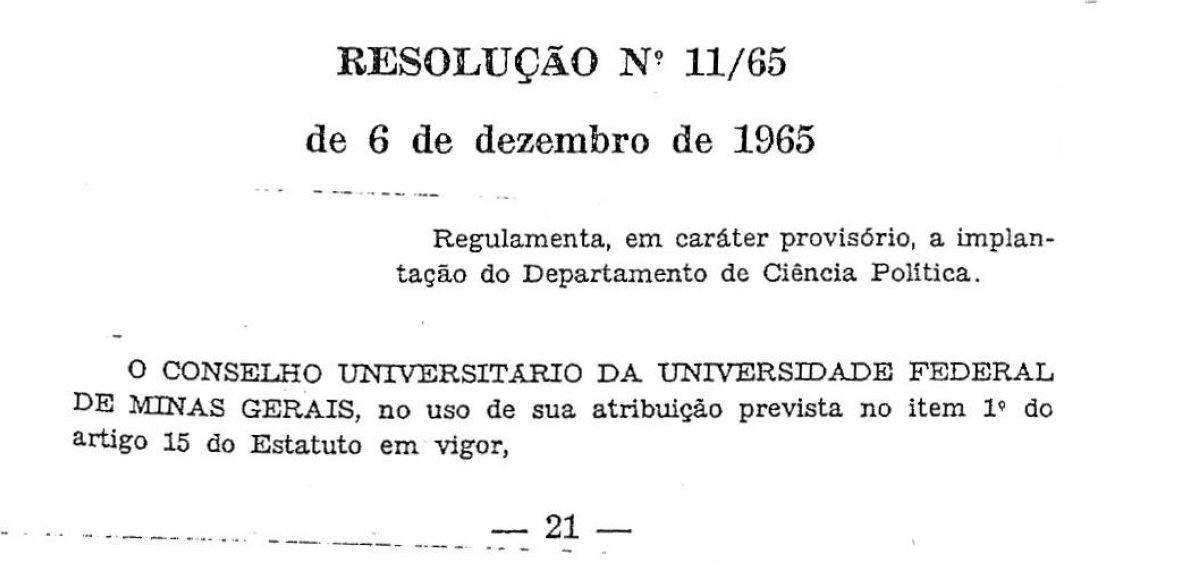 |
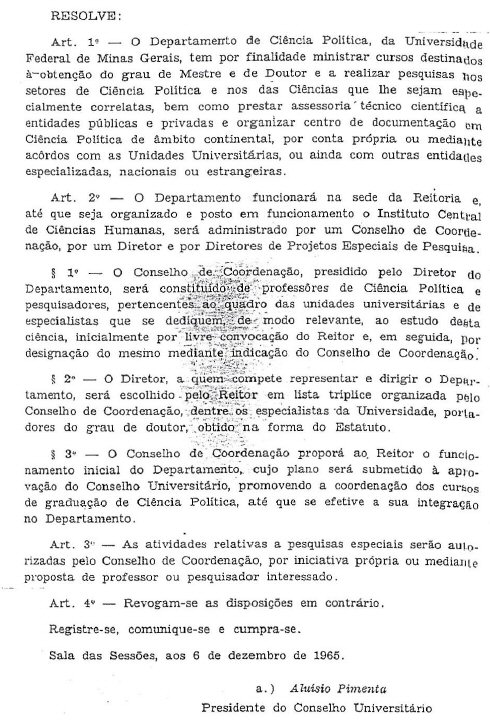 |
The Ford Foundation's participation was essential for the creation of the DCP-UFMG, when it contemplated UFMG with resources amounting to 600 thousand dollars destined to the development of the field of Political Science. After the creation of the Department, the support of the Ford Foundation unfolded to fund visiting professors, setting up a scholarship program for Brazilian students abroad, supporting of research, acquiring books, among others.
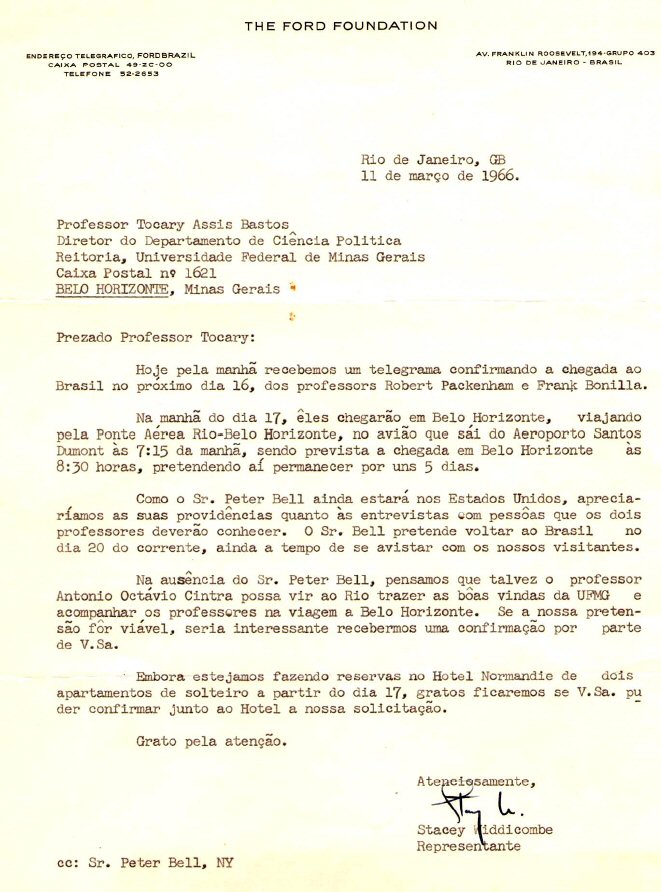
Letter from Widdicombe-Ford to the UFMG Chancellor
Ten days after the creation of the Department, on December 16th, the following professors met upon summoning the vice-chancellor in order to form a triple list, which was constituted after 3 ballots, destined to choose the first director of the DCP-UFMG:
- Gerson de Brito Melo Boson- Orlando Magalhães Carvalho
- Júlio Barbosa
- Morse de Belem Teixeira
- Antônio Octávio Cintra
- Tocary de Assis Bastos
- Fábio Wanderley Reis
- Ronald Braga
- José Clóvis Machado
On January 4th, 1966, Orlando de Carvalho, professor of the Faculty of Law, was appointed as the first head of the Political Science Department at UFMG.
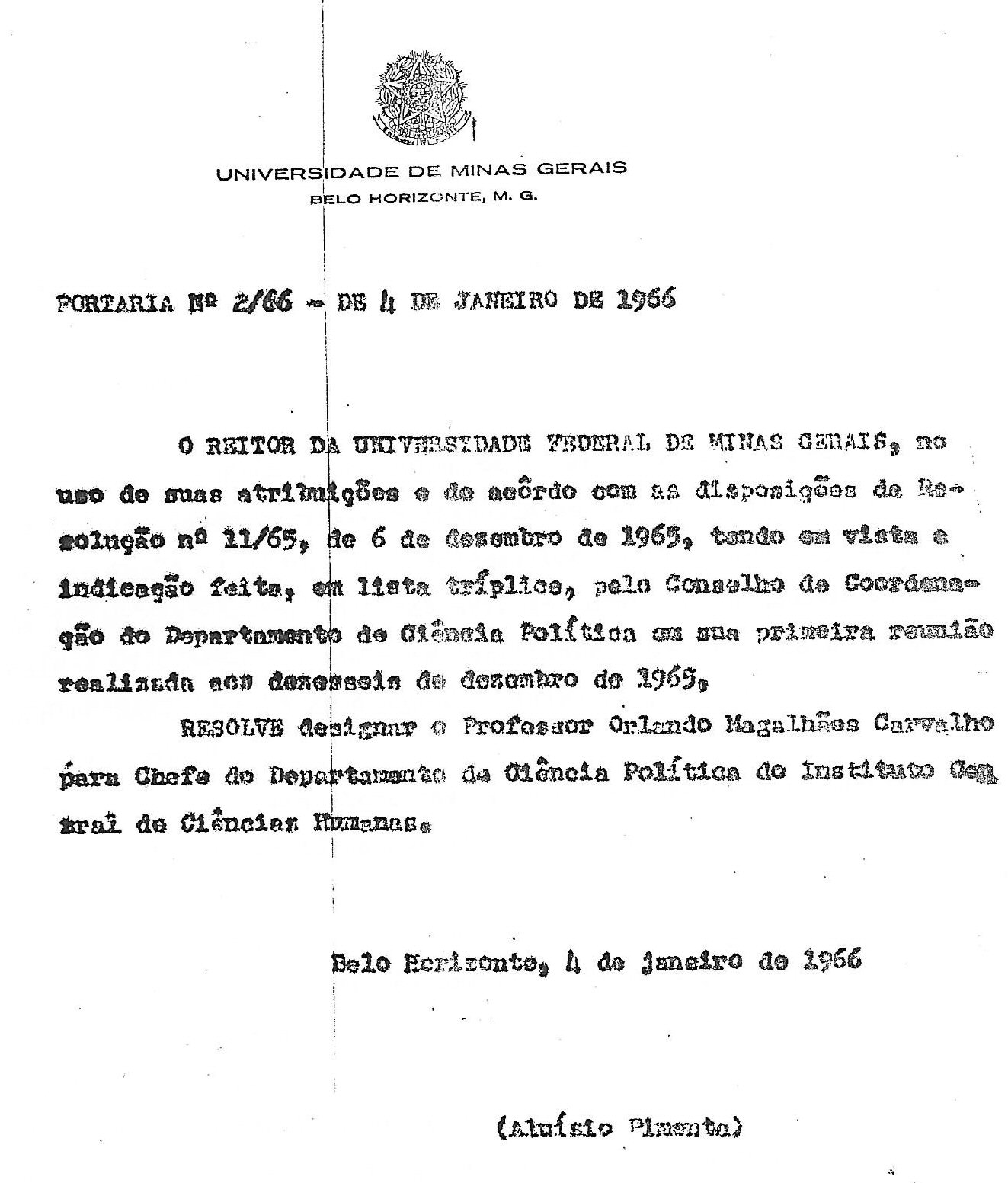
First Head of the DCP
In 1966, the Department's activities focused on setting up the institution, which was based on the 7th floor of the Chancellor's building, located at the Pampulha Campus. There was an intense exchange of letters in the early months of 1966 between the Ford Foundation's representative, Peter Bell; Stanford University professors, such as Robert A. Packenham and Gabriel Almond; and Frank Bonilla, of the Massachusetts Institute of Technology, for these professors to come to Brazil with the objective of selecting scholarship holders for the PhD program in universities in the United States. This was the construction of a scholarship program that the Ford Foundation would subsidize and which, in the following years, would form an important cadre of professionals with postgraduate degrees in Political Science.
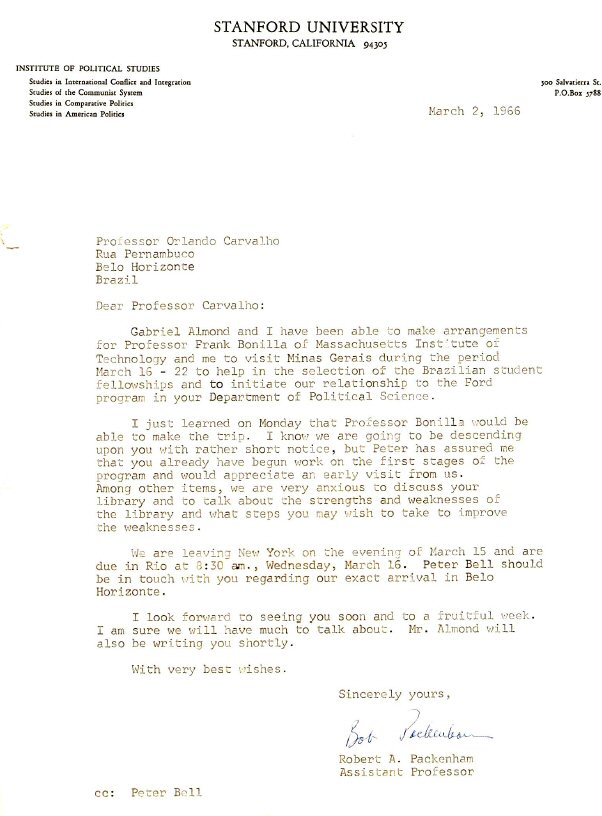 1966 Ford Charter |
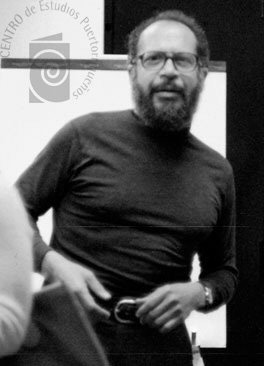 Frank Bonilla |
That year, the DCP-UFMG along with the Faculty of Economic Sciences of the University and with the Center for International Affairs from Harvard University also promoted the "International Seminar on Political Development". The event was held in the auditorium of the Chancellor's Building and was attended by students and scholars from Brazilian and foreign universities. Then a series of announcements were published in newspapers of regional and national circulation in the second term, with the goal of selecting the first class of the Master's program, which would effectively start in 1967.
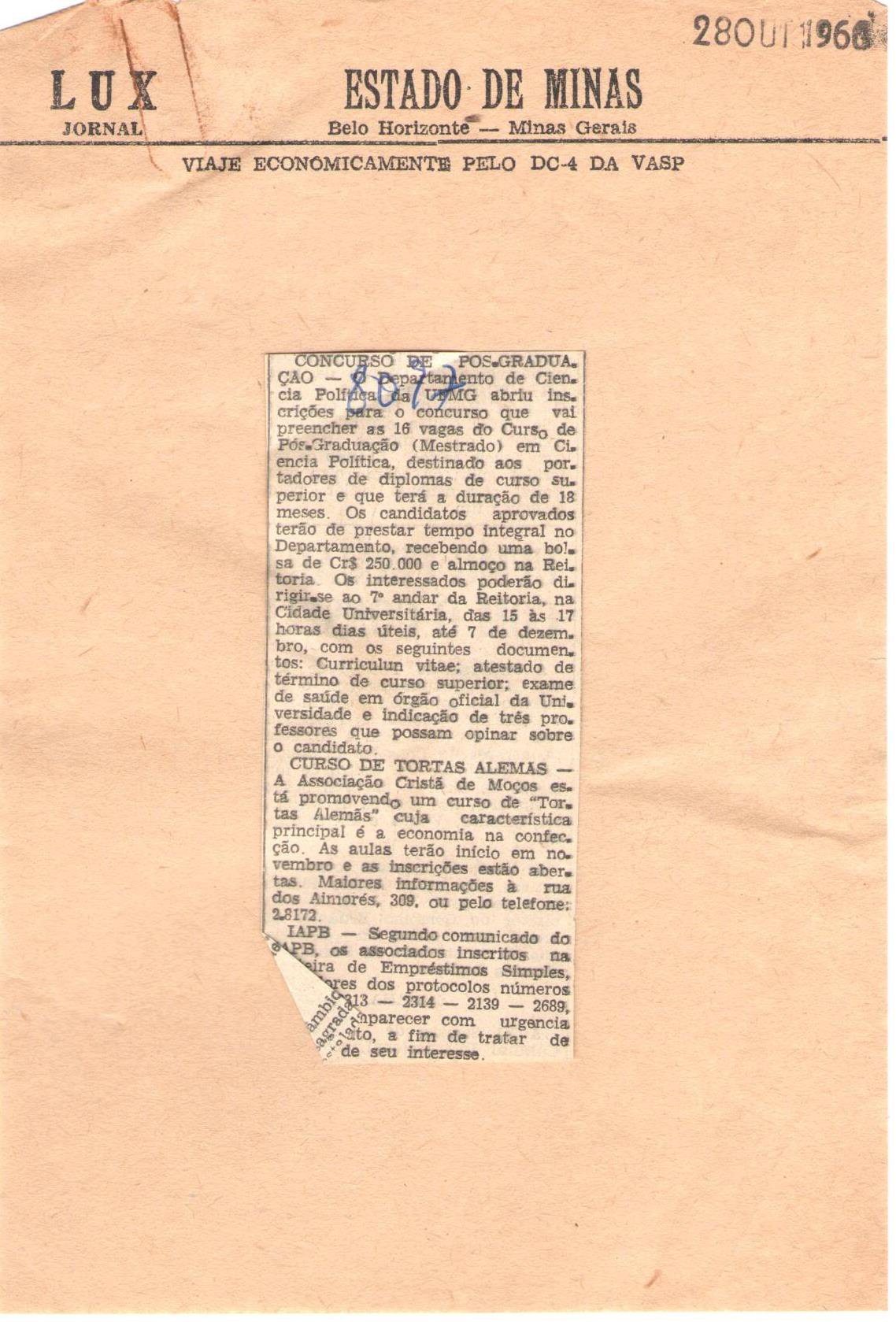
Clipping of the selection disclosure
In the first years of operation of the DCP-UFMG, given that there were no PhDs trained in Political Science, the strategy was to send young sociologists linked to the new department to pursue a PhD abroad. In addition, there was an effort to bring foreign visiting scholars and professors from other units of UFMG to teach in the Master's program.
The Database for Brazilian states was created in 1968, a major undertaking that would produce data directly linked to the Department's interests. The purpose of the project was to obtain a systematic set of information about Brazil, deployed to states and municipalities.
The Master's accreditation process in the competent federal bodies began in 1969, with the program's registering at CAPES.
The first four defenses of the so-called "Master's Theses" took place in 1970. The following students qualified: Magda Prates Coelho, Malori José Pompermayer, Benicio Viero Schmidt, and Evelina Peixoto Dagnino, in that order. On this occasion, in addition to the students and professors of the Program, the young students Fernando Henrique Cardoso and Carlos Estevam Pinto, from the Brazilian Center for Analysis and Planning (CEBRAP), were present at the defense. The Center had been recently created in 1969, also with the decisive support from the Ford Foundation.
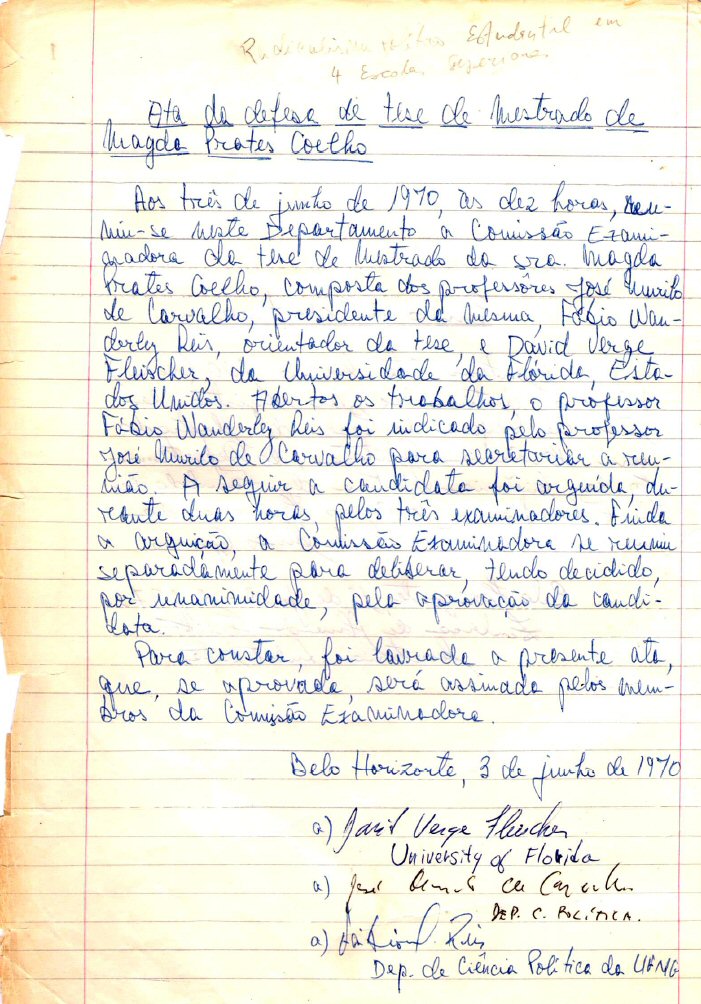 Master's Defense Minute for Magda Prates Coelho |
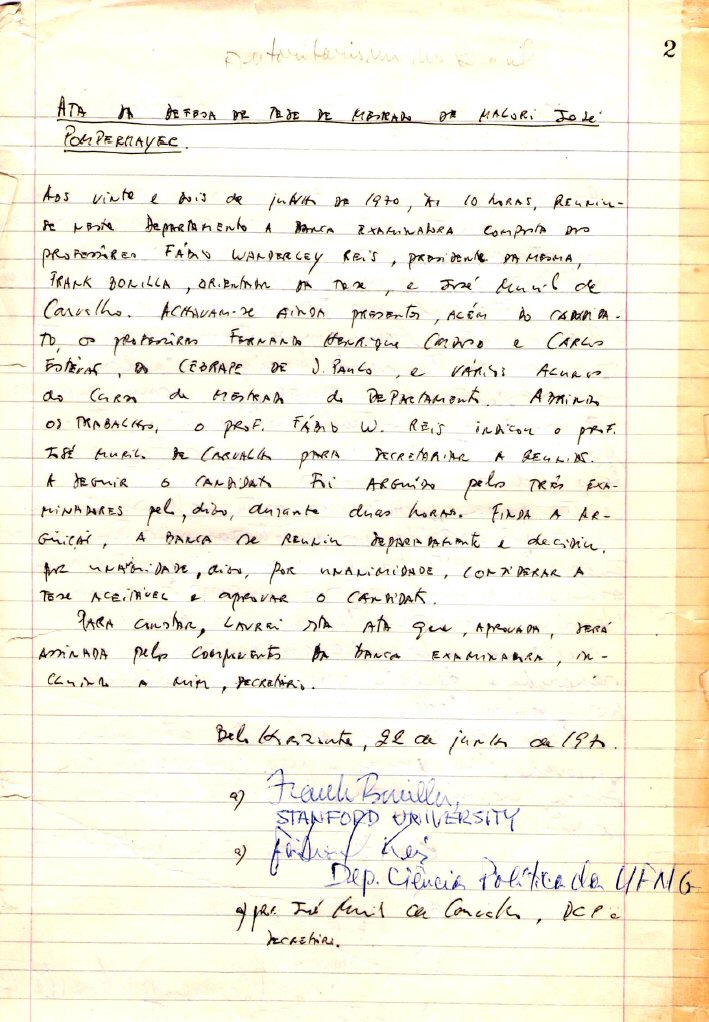 Master's Defense Minute for Malori José Pompermayer |
|
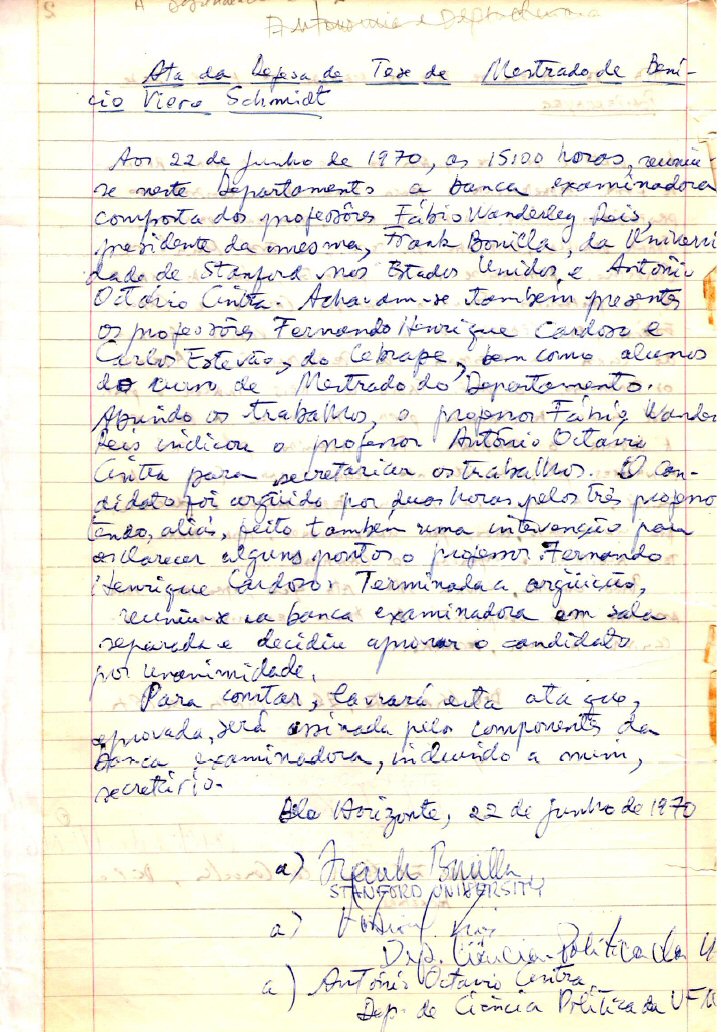 Master's Defense Minute for Benicio Viero Schmidt |
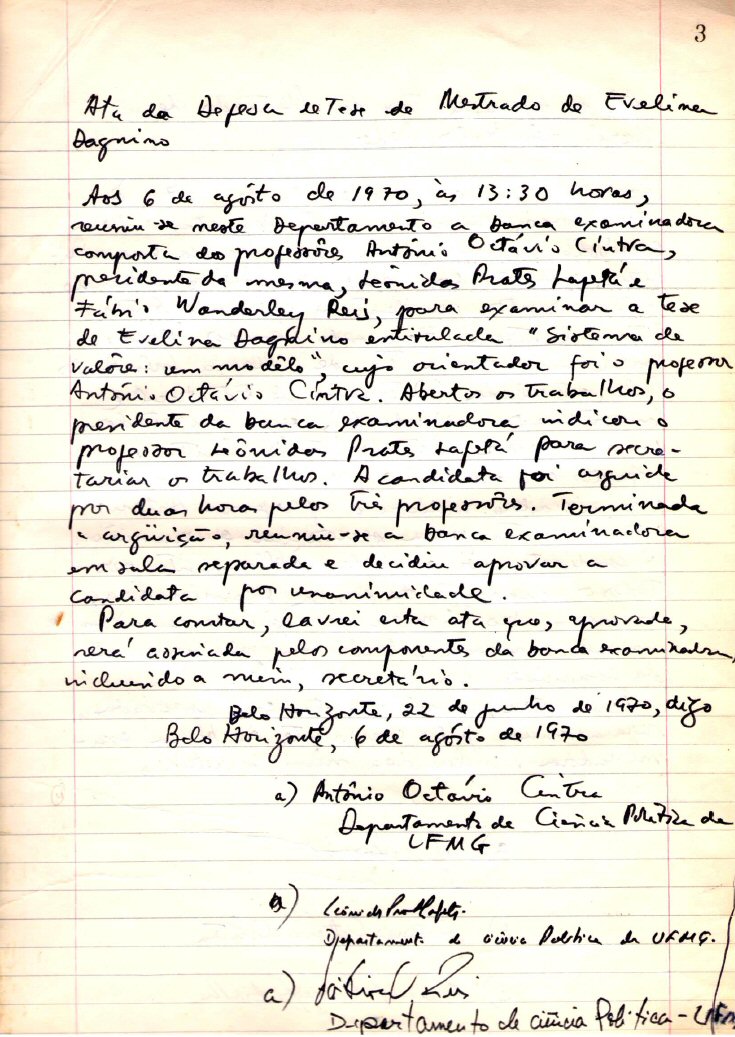 Master's Defense Minute for Evelina Peixoto Dagnino |
The Collegiate for Pedagogical Coordination of the Political Science Postgraduate course was established in October 1970, composed by Antônio Octávio Cintra, José Murilo de Carvalho, José Clovis Machado, and Leônidas Prates Lafetá. On the 15th of October, the board met "(...) in order to be officially established". The first Faculty then structured the course, the recruitment guidelines, and lines of research, among other subjects. By the end of 1970, the DCP already had its own direction and coordination instances, which functioned in an integrated manner with its counterparts at the University.
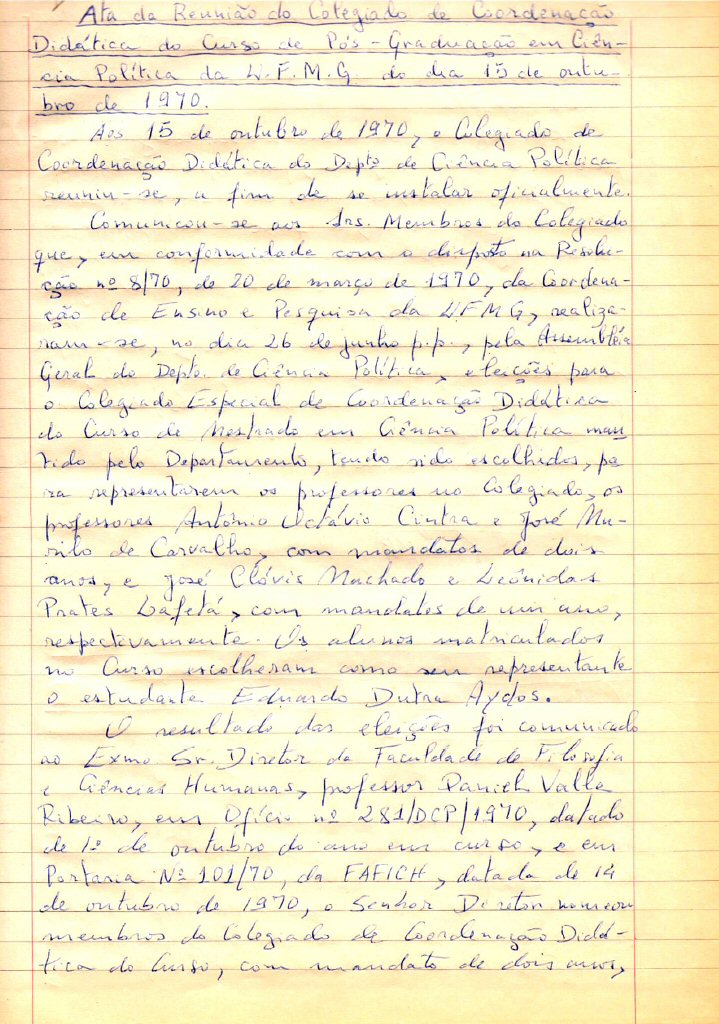 |
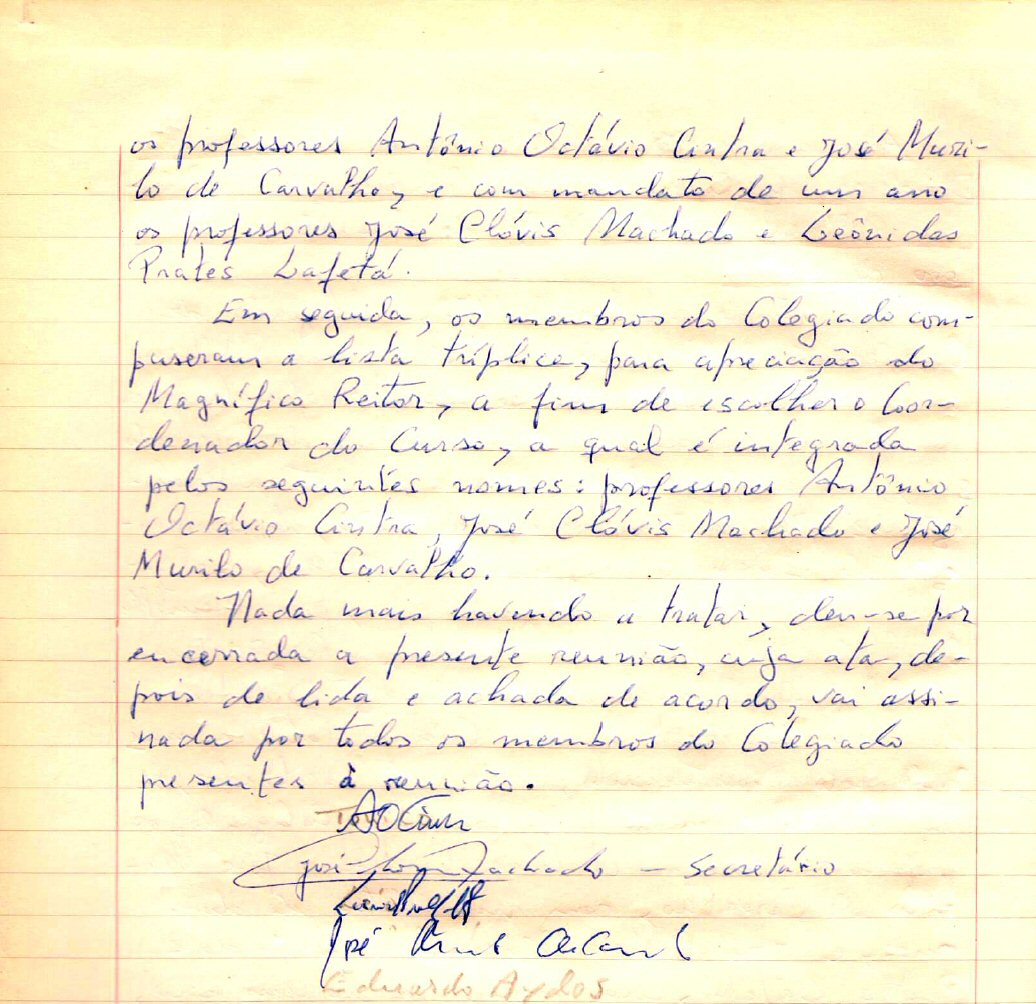 |
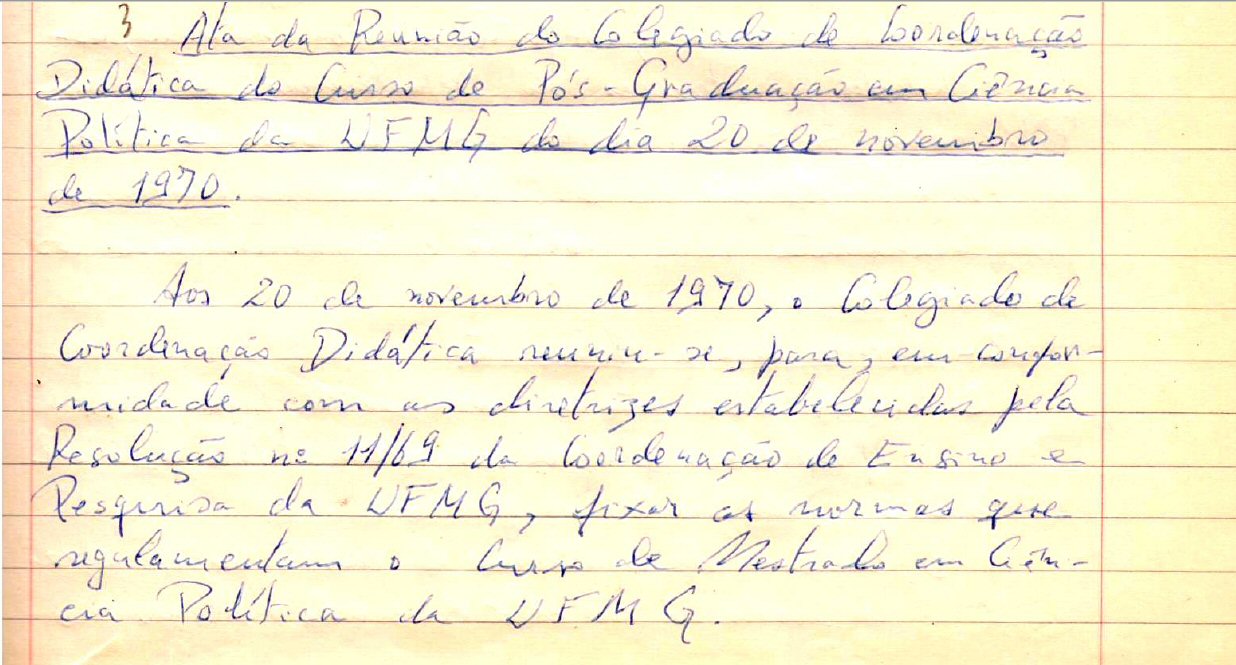
Master's structuring minutes (click to download)
The five concentration areas defined by the Faculty in 1970 were disclosed in the 1971/72 Master's catalog. They were: i. Political Analysis: Theory and Methods; ii. Brazilian politics; iii. Comparative Policy; iv. International Policy; and v. Policy Development and Analysis. The Catalog also released the faculty names, in addition to the disciplines, the structure of the course, and information on the 1968 Database.
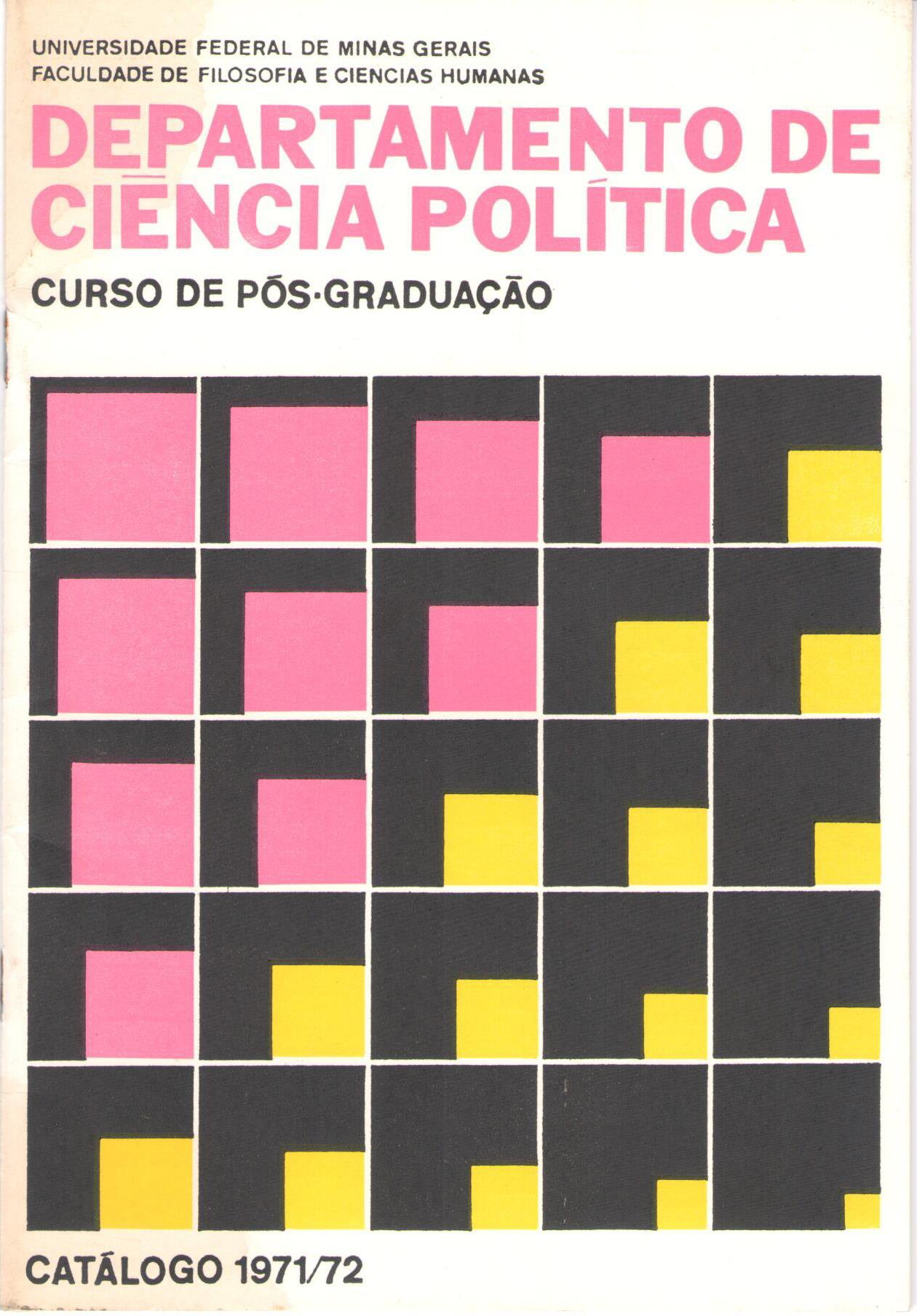
Catalog 1971/72
The accreditation process, started in 1969, was concluded in 1973. It was a slow process and one which required the Department to act both on administrative and academic fronts. During that period, the Federal Government implemented new rules for national graduate courses in order to modernize the national higher education system. Thus, the DCP-UFMG had to respond satisfactorily to the newly established criteria in order to obtain the accreditation for its Master's Degree. After going back and forth, the publication for the DCP-UFMG accreditation as a center of excellence in the area came out in 1973. This status, from then on, would guarantee the Department's regular support from federal agencies focused on postgraduate studies.
 Radiogram with accreditation news |
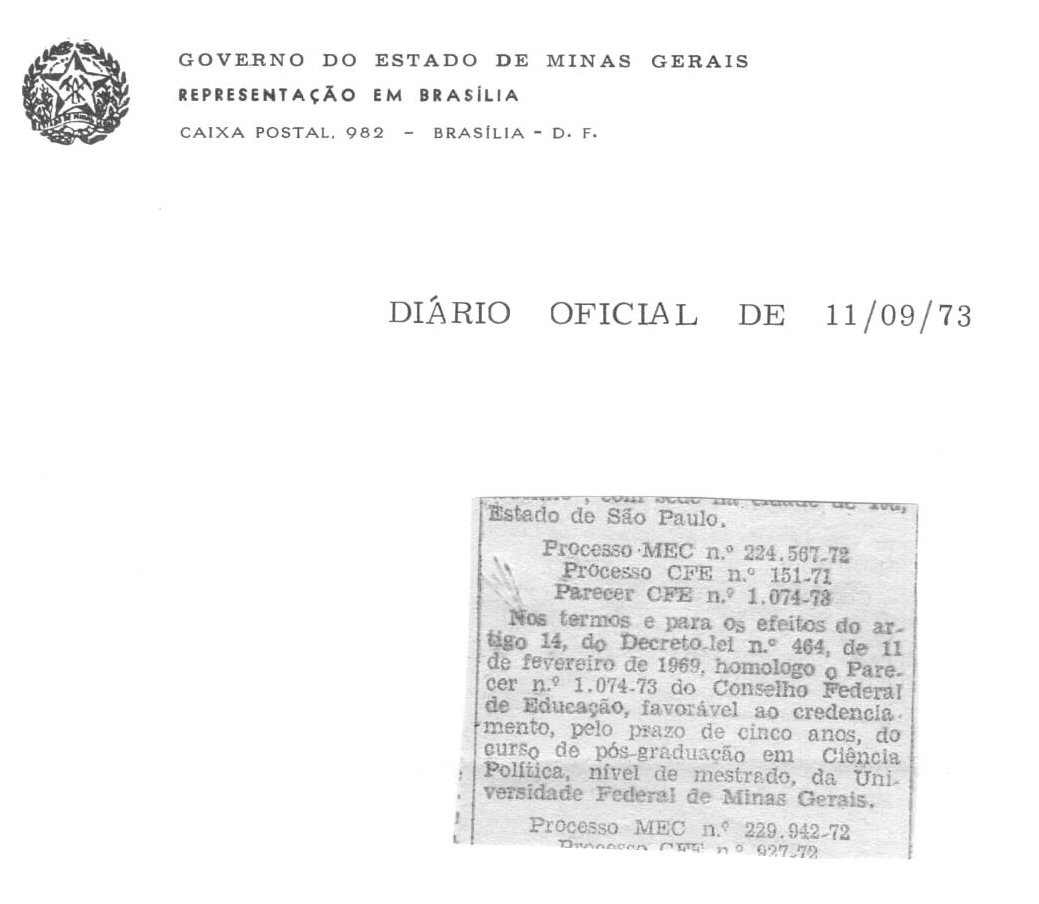 Publication on the Official Gazette |
The first issue of the journal Cadernos DCP was launched in March 1974, with the aim of publishing works by professors and students of the DCP. The first edition featured articles by Fábio Wanderley Reis, Antônio Octávio Cintra, Leônidas Prates Lafetá, and José Murilo de Carvalho.
The Latin American Comparative Studies Program (PECLA) was created in 1976, which promoted new research fronts, as well as the hiring of specialist professors.
It is important to note that the DCP was born and consolidated during the military dictatorship, and it was not immune to the regime's authoritarian attacks. Therefore, over the course of the 1970s, the following activities of the Department were investigated by bodies integrated into the information system: scientific seminars, research projects, the backgrounds of professors, and the behavior of students linked to the Department.
CAPES began a new method for grading postgraduate courses in 1976. After 1995, CAPES stopped grading courses and started grading Programs. To see how the PPGCP has been graded over time, go to: http://www.ppgcp.fafich.ufmg.br/avalcapesi.php
As a result of interdepartmental action in 1994, the PhD in Human Sciences: Sociology and Politics was created. It was a postgraduate program in which the departments of Political Science, Anthropology, and Sociology worked together. Then in 2005 the PhD in Political Science of the DCP-UFMG was created, and from that point on the Department started to regularly provide Master's and PhD courses in the area.
Regarding undergraduate courses, in addition to being one of those responsible for sustaining the Social Sciences course and offering disciplines in other courses, the DCP was the proponent and main provider of disciplines for the on-site Public Management course in 2009. The course resulted from the Department's adherence to the Restructuring and Expansion Plan for Universities (Reuni). Since then, the course has been offered at night, with two annual entries, and the disciplines are taught by professors from the departments of Political Science, Economics, and Sociology.
More than 50 years after its creation, the DCP has consolidated as a national reference in teaching and research, decisively contributing to the production and debate in the field of Political Science in Brazil. The Graduate Program in Political Science has achieved and maintains a level of excellence in the CAPES evaluation, impacting publications in the area, mainly in the production of books and articles in qualified journals. The five lines of research reflect its capacity for renewal, without prejudice to areas which are already consolidated. The Department also stands out for its insertion in international networks, having 16 centers and nuclei involved in research and extension.
People responsible for this content
 Lidiany Silva Barbosa has a degree in History from UFOP, a Master's degree in Rural Extension from the Federal University of Viçosa (2004), and a PhD in Social History, with concentration on Society and Economics, from the Federal University of Rio de Janeiro (2011). She completed a post-doctorate at the School of Information Science (ECI-UFMG) in 2018, and as well as a post-doctorate at PPGCP-UFMG (2019-2020).
Contact: lidiany@cedeplar.ufmg.br
Lidiany Silva Barbosa has a degree in History from UFOP, a Master's degree in Rural Extension from the Federal University of Viçosa (2004), and a PhD in Social History, with concentration on Society and Economics, from the Federal University of Rio de Janeiro (2011). She completed a post-doctorate at the School of Information Science (ECI-UFMG) in 2018, and as well as a post-doctorate at PPGCP-UFMG (2019-2020).
Contact: lidiany@cedeplar.ufmg.br
 Natália G. D. Sátyro (PPGCP-UFMG Coordinator: 2018-2020)
Natália G. D. Sátyro (PPGCP-UFMG Coordinator: 2018-2020)
 Lidiany Silva Barbosa has a degree in History from UFOP, a Master's degree in Rural Extension from the Federal University of Viçosa (2004), and a PhD in Social History, with concentration on Society and Economics, from the Federal University of Rio de Janeiro (2011). She completed a post-doctorate at the School of Information Science (ECI-UFMG) in 2018, and as well as a post-doctorate at PPGCP-UFMG (2019-2020).
Contact: lidiany@cedeplar.ufmg.br
Lidiany Silva Barbosa has a degree in History from UFOP, a Master's degree in Rural Extension from the Federal University of Viçosa (2004), and a PhD in Social History, with concentration on Society and Economics, from the Federal University of Rio de Janeiro (2011). She completed a post-doctorate at the School of Information Science (ECI-UFMG) in 2018, and as well as a post-doctorate at PPGCP-UFMG (2019-2020).
Contact: lidiany@cedeplar.ufmg.br
 Natália G. D. Sátyro (PPGCP-UFMG Coordinator: 2018-2020)
Natália G. D. Sátyro (PPGCP-UFMG Coordinator: 2018-2020)




